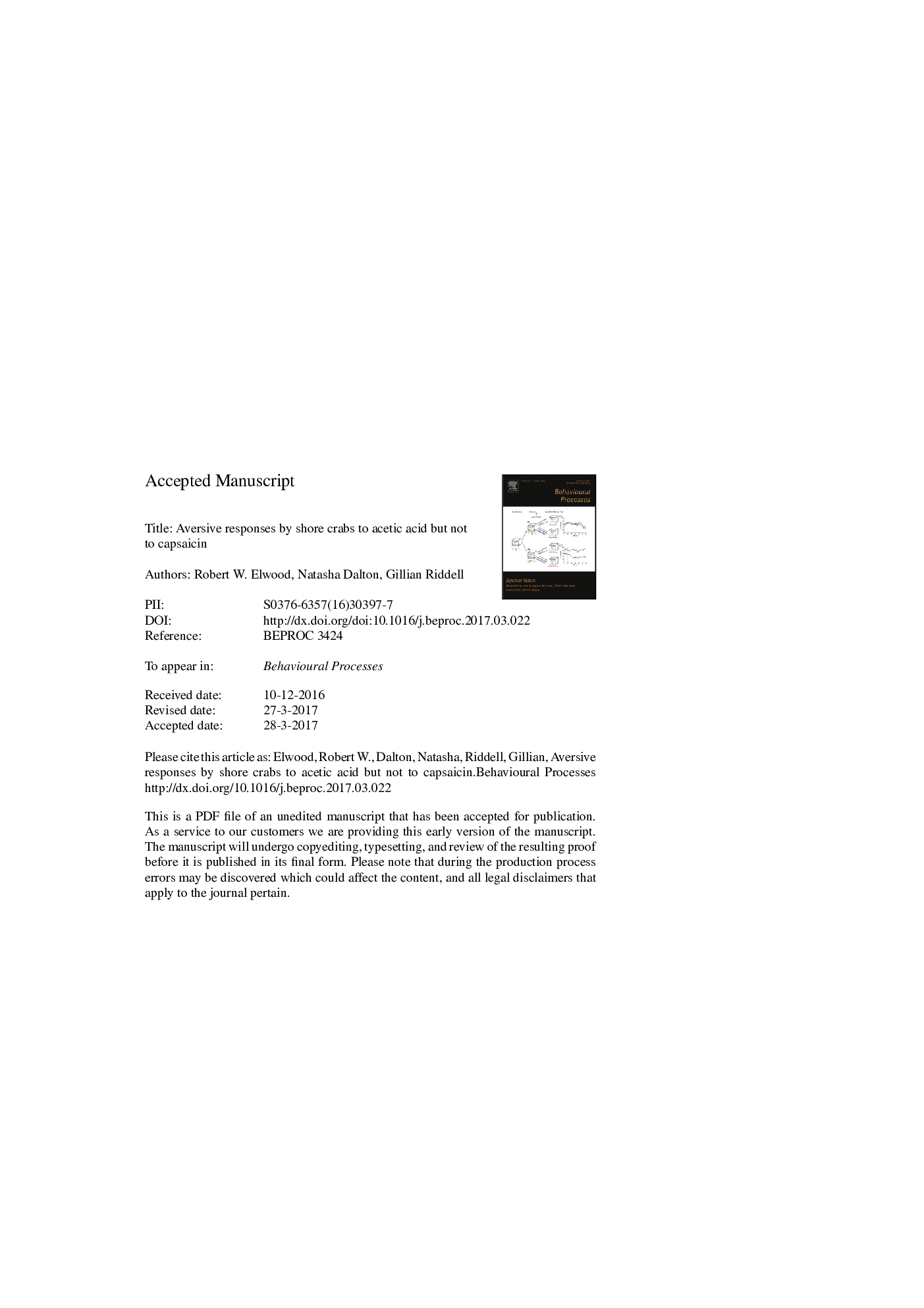| کد مقاله | کد نشریه | سال انتشار | مقاله انگلیسی | نسخه تمام متن |
|---|---|---|---|---|
| 5539764 | 1553140 | 2017 | 19 صفحه PDF | دانلود رایگان |
عنوان انگلیسی مقاله ISI
Aversive responses by shore crabs to acetic acid but not to capsaicin
ترجمه فارسی عنوان
پاسخ های غلط از طریق خرچنگ های ساحلی به اسید استیک، اما نه کپسایسین
دانلود مقاله + سفارش ترجمه
دانلود مقاله ISI انگلیسی
رایگان برای ایرانیان
کلمات کلیدی
موضوعات مرتبط
علوم زیستی و بیوفناوری
علوم کشاورزی و بیولوژیک
علوم دامی و جانورشناسی
چکیده انگلیسی
Nociception is the ability to encode and perceive harmful stimuli and allows for a rapid reflexive withdrawal. In some species, nociception might be accompanied by a pain experience, which is a negative feeling that allows for longer-term changes in behaviour. Different types of stimuli may affect nociceptors, but in crustaceans there is conflicting evidence about the ability to respond to chemical stimuli. This study attempts to resolve this situation by testing behavioural responses of the common shore crab, Carcinus maenas, to two chemical irritants frequently used in vertebrate pain studies (acetic acid and capsaicin). In our first experiment acetic acid, water, capsaicin or mineral oil were applied by brush to the mouth, and in a second experiment treatments were applied to the eyes. Application of acetic acid had a marked effect on behaviour that included vigorous movement of mouth parts, scratching at the mouth with the claws and attempts to escape from the enclosure. Acetic acid also caused holding down of the acid-treated eye in the socket. By contrast, capsaicin had no effect and was no different to the control treatment of mineral oil and water. These results demonstrate responsiveness to acetic acid and thus nociceptive capacity for at least some chemicals. Further, the responses that persist after application were consistent with the idea of pain, however, proof of pain is not possible in any animal.
ناشر
Database: Elsevier - ScienceDirect (ساینس دایرکت)
Journal: Behavioural Processes - Volume 140, July 2017, Pages 1-5
Journal: Behavioural Processes - Volume 140, July 2017, Pages 1-5
نویسندگان
Robert W. Elwood, Natasha Dalton, Gillian Riddell,
